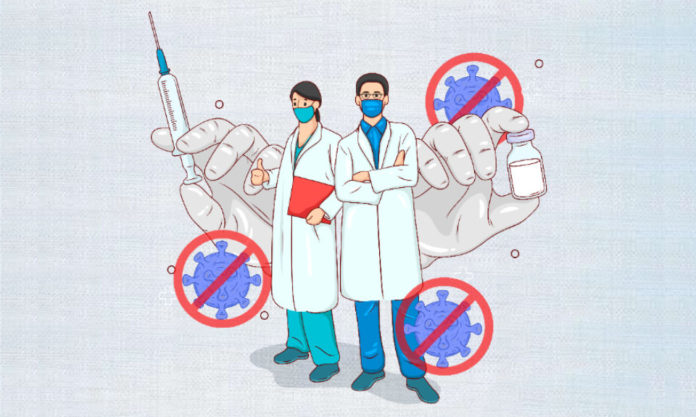With news spreading like wildfire of places in many parts of China now refusing entry to people not vaccinated against COVID, health authorities at the national level are attempting to reign in such efforts, since vaccination remains an issue of consent.
We get it. No local official wants a COVID case on their patch. Denying the unvaccinated access to supermarkets, malls, schools et al. seems the easiest way to go.
Even some places in Qixia District of our very own Nanjing have been reported to be turning away the unclean. But they are forgetting something.
According to the National Health Commission (NHC), COVID vaccinations in China still follow the basic principles of “information, consent and voluntariness”. Those who have not been vaccinated shall not have affected their personal affairs such as travel. In other words, it’s a basic human right.
But not everyone has got the message, it seems. That’s strange, given that as long ago as on 11 April, Mi Feng, a NHC spokesperson, noted at a press conference that “one-size-fits-all” vaccination efforts had appeared in some places. Mi said, “The situation must be resolutely corrected”, reported China Business News.
To do so, however, requires that everyone be on the same page. Therefore, Raffles Medical in Nanjing has today provided The Nanjinger with the official government guidelines as to those who should not be vaccinated and those for whom vaccination should be postponed.
The complete official list of “Not Vaccinable” (the latest of many new words we have all learned in the past 18 months) from the NHC comprises:
- Persons with uncontrolled epilepsy and other serious nerve system diseases (such as transverse myelitis, Guillain-Barré syndrome, demyelinating diseases, etc.)
- Those who had a severe allergic reaction after their first shot (such as acute allergic reaction, angioedema, dyspnea, etc.)
- Those who are allergic to vaccine ingredients and adjuvants, (inactivated COVID vaccine adjuvant mainly includes sodium chloride, sodium dihydrogen phosphate and aluminum hydroxide)
- Patients with fever, acute disease, acute attack of chronic disease or uncontrolled severe chronic disease
- Pregnant women
- Those suffering from thrombocytopenia or hemorrhagic diseases
The list of conditions, sufferers from which should postpone their vaccination, goes thus:
- Those with fever (an axillary temperature ≥37.3 degrees Celcius) caused by any reason (cold, wound infection, local inflammation, etc.)
- Those in the acute stages of gout, severe cold, myocardial infarction and cerebral infarction
- Those with malignant tumor(s) who are undergoing chemotherapy and radiotherapy before and after surgery
- Those experiencing headache, dizziness, nausea, vomiting, chest tightness or stomach discomfort
- Those experiencing urticarial reactions where there is also skin pruritus
- Those suffering from acute diarrhea caused by norovirus or similar
There you have it. But away from those to whom vaccination might present a serious health threat, others have more ethical dilemmas to consider.
Especially the parents of younger children. While China Daily reported yesterday that parts of the country will phase in COVID vaccination for minors aged between 12 and 17, parents of those younger remain in limbo.
Their thinking is simple; why should I be vaccinated if my child cannot be?
Elsewhere, it’s not just those who are pregnant. It’s those seeking to fall pregnant, reticent on account the vaccine may impact on fertility. And in a country pretty desperate to encourage more people to have babies, making vaccination compulsory is not a shot in the arm; it’s a shot in the foot.









